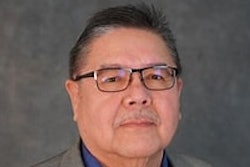In his 2004 address to the Democratic National Convention, Illinois State Senator Barack Obama remarked:
Now even as we speak, there are those who are preparing to divide us, the spin masters and negative ad peddlers who embrace the politics of anything goes. Well, I say to them tonight, there’s not a liberal America and a conservative America; there’s the United States of America. There’s not a Black America and White America and Latin America and Asian America; there’s the United States of America.
Obama was wrong. America isn’t divided by pundits and peddlers. It isn’t divided by vacuous political labels that tell us little about people’s commitment to mutual progress. Our country is divided because of a fundamental failure to embrace a most basic sense of common humanity that has long fueled public policy, law and practice. That failure is reflected in the continued rejection of people who look differently, come from different places of origin, worship differently and love differently. We are divided because promoting the politics of exclusion is as American as apple pie.
The vision of the U.S. as the great melting pot (or salad bowl) has always been aspirational, hampered at times by competing visions of progress. The unique brand of American Democracy — what Alexis de Tocqueville called “American Exceptionalism” — has been contested since the founding of this nation.
As Thomas Jefferson penned the words “we hold these truths to be self-evident that all men are created equal,” he enslaved nearly 200 Africans, including his wife’s half-sister, Sally Hemings. Hemings birthed at least six children who, by Virginia law, remained enslaved and thus ineligible to inherit the land, property and freedom of their father. And now, as Jefferson’s Monticello comes to grips with this complicated and contentious history, the United States stands at a similar crossroads of deciding whether to live up to her promise.
The rejection of difference is reflected in the Supreme Court’s 1884 decision that John Elk and other American Indians weren’t entitled to birthright citizenship in the United States. A ruling that set in motion a perpetual debate over tribal sovereignty and respect for ancestral land at places like Standing Rock. Even after the passage of the Indian Citizenship Act of 1924, access to the rights, privileges and responsibilities of American citizenship were constrained by state law and practice. And now, some 134 years later, lawmakers ponder rescinding birthright citizenship out of fear that the browning of America threatens to undermine the political status quo.
A fear of difference fueled the adoption of the 1882 Chinese Exclusion Act. The first time in history that the U.S. adopted an immigration measure that specifically barred a path to citizenship based on country of origin. Although Chinese workers had been recruited to the United States to work on railroads and, in turn, bolster American wealth, fears over “racial purity” sparked demands for a legislative response. Legislators blamed Chinese workers for the country’s economic decline despite the reality that the workers labored in dangerous, low-wage positions without the protections enjoyed by other workers. The past is prologue.















